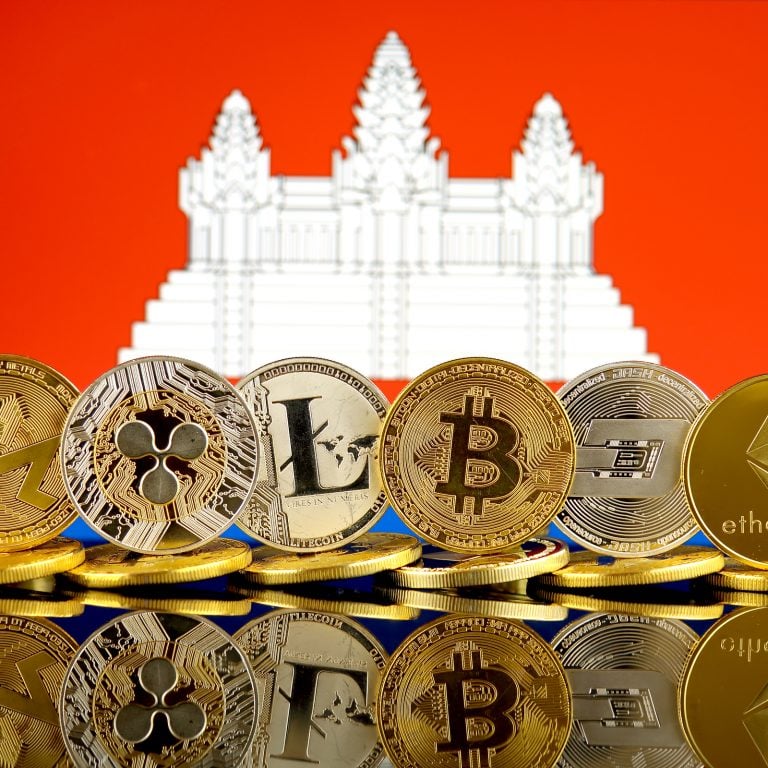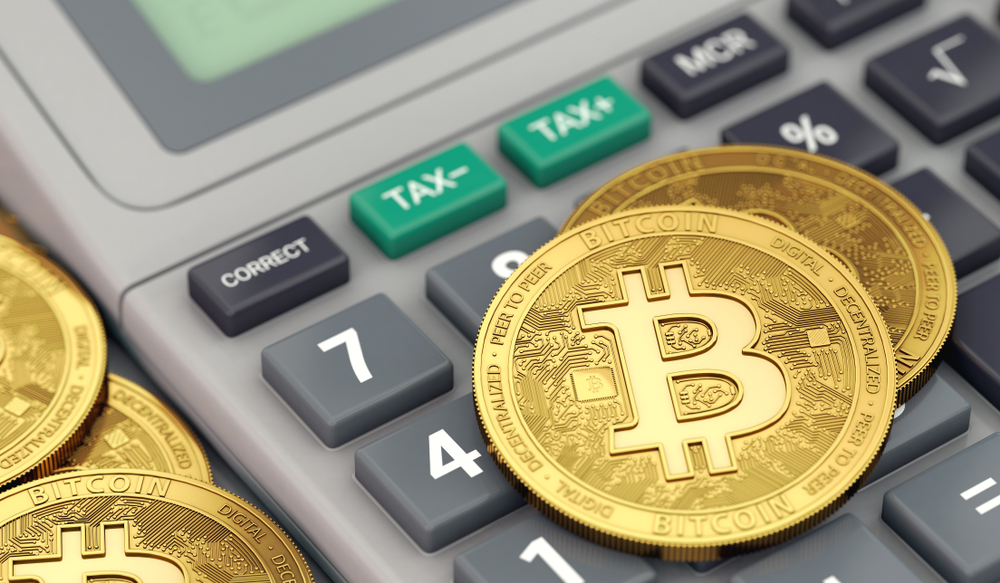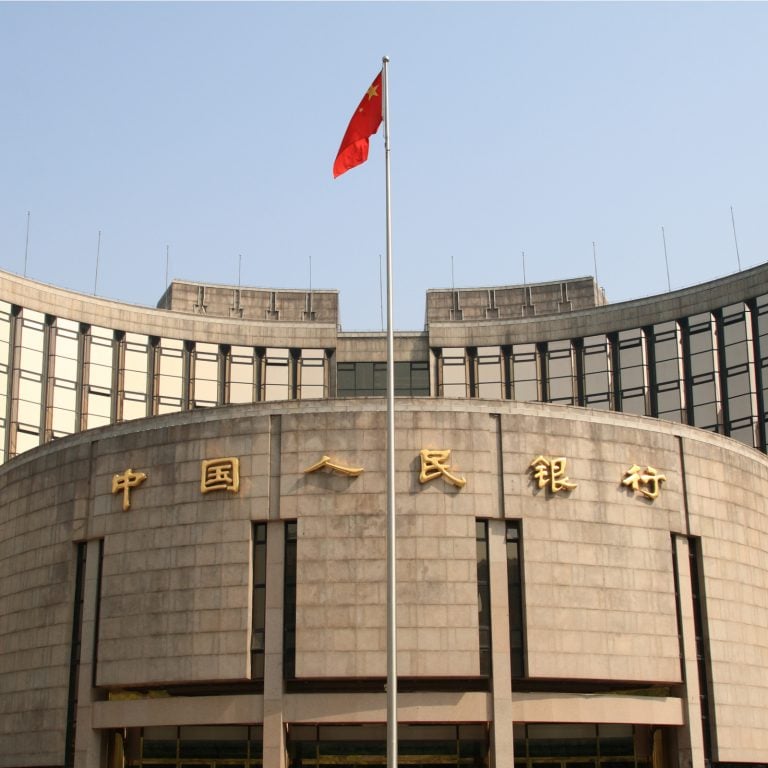
The Satoshi Revolution: A Revolution of Rising Expectations
Section 2: The Moral Imperative of Privacy
Chapter 6: Privacy is a Prerequisite for Human Rights
How Centralized Exchanges Intend to Devastate You. Chapter 6, Part 6.
The root problem with conventional currency is all the trust that’s required to make it work…We have to trust them [third parties] with our privacy, trust them not to let identity thieves [including government] drain our accounts.
– Satoshi Nakamoto
Satoshi never envisioned centralized exchanges. The spectacle would have appalled him. Bitcoin was forged to avoid centralized third parties, such as banks and centralized exchanges, that require users to trust them with wealth and privacy. Peer-to-peer transfers based on cryptographic proof were supposed to replace the need for a middleman who demanded trust. They were designed to give financial power back to the individual.
The problem: there is a market demand to speculate, to trade in currencies, and to perform sophisticated financial transactions for which peer-to-peer (as it currently exists) can be ill-equipped. There is also a demand for convenience and access that does not require technical knowledge or effort. Centralized exchanges may be the polar opposite of what Satoshi envisioned, but centralized exchanges fill a niche, or else they would not be popular. They currently dominate much of the crypto world, with a majority of users entrusting exchanges with their wealth and privacy.
The niche of centralized exchanges comes from blending the functions of a stock market and a bank. A centralized exchange is a marketplace for trading or converting assets through a single location or service. In many ways, it is similar to the New York Stock Exchange. Currencies can be traded and shorted, for example; margin trading, stop loss, and lending are also available. Satoshi did not address the stock-market functions of crypto, which he probably did not foresee. In fairness, Satoshi explicitly referred to Bitcoin as a developing and evolving technology, which was in its infancy.
In other ways, centralized exchanges resemble banks. After purchasing crypto from an exchange, many customers choose to leave their coins in an account rather than transfer them to a private wallet on their own hard drive. The reasons vary: convenience, the comforting similarity to a bank, the ease of converting to fiat, quick trading, and discomfort with the technology required to set up a private wallet. Whatever the reason, centralized exchanges become trusted third parties that endanger the wealth and well-being of individuals. Consider one aspect of the problem. Private keys are the crypto. The coins have no physical presence, only algorithmic ones. When an exchange controls the keys, it owns the coins; the customer has nothing more than a promise of access to them upon demand.
Reality often breaks promises. Hackers use software vulnerabilities and human error to loot accounts that are advertised as secure. High volume causes downtime, during which traders lose opportunities and prices can plummet. Then, there are calculated denials of access. Outstanding orders may be canceled, especially if rates disadvantage the exchange; withdrawals and deposits can be halted without notice; exchanges vanish, along with accounts; owners commit fraud or steal from accounts. This returns people to the pre-Bitcoin days, in which trust and betrayal are defining factors of wealth management.
Recently, the risks associated with centralized exchanges have increased exponentially, and for one reason.
A Forbes article (Feb. 28, 2018) announced the inevitable.
“It’s finally happening: The much-ballyhooed turnover of documents in the battle between the Internal Revenue Service (IRS) and Coinbase, a company which facilitates transactions of digital currencies like Bitcoin and Ethereum, is moving ahead. Coinbase has announced that it has notified affected customers that it will comply with a court order regarding the release of specific data.”
2018 is the year in which tax agencies get serious about cryptocurrency profits and holdings. Governments around the world are watching as Coinbase turns in data on its customers, which will almost certainly lead to audits and high-profile prosecutions. Specifically, Coinbase is reporting all customers with transactions of $20,000 or more in a single year between 2013 and 2015. Taxpayer IDs, real names, dates of birth, street addresses, and all transaction records from whichever period is in question will be delivered. The wealth of data is available because Coinbase, like every other licensed centralized exchange, complies with Know Your Customer and Anti-Money Laundering laws, which destroy financial privacy.
Beyond such requirements, Coinbase is extremely aggressive about gathering information and verifying identities. The exchange uses facial-recognition technology, for example, to compare a real-time face shot from a webcam or smart phone with whatever ID an applicant submits. Coinbase UK adds, “we may collect personal information disclosed by you on our message boards, chat features, blogs and our other services to which you are able to post information and materials.”
Expect such intrusion to become the norm for centralized exchanges that prize their licenses and relationships with government. Expect them to act as data-gathering arms of government. The danger is not only the freezing and confiscation of accounts, but also legal proceedings against and imprisonment of account holders. The IRS states that “anyone convicted of tax evasion is subject to a prison term of up to five years and a fine of up to $250,000. Anyone convicted of filing a false return is subject to a prison term of up to three years and a fine of up to $250,000.”
Fortunately, the market demand for stock market and banking functions can be satisfied (or soon will be) without sacrificing the privacy and safety.
Decentralize for Privacy
A decentralized exchange is a marketplace that does not rely on third party services. Trades are peer-to-peer; they are direct transfers between people who use an automated process to facilitate the exchange. They are trustless. They are transparent, with software and transactions being open source. They are Satoshi. A decentralized exchange allows individuals to hold their own private keys, which makes it a less attractive target for hackers. It also requires a minimal amount of personal or financial data to establish an account and to conduct commerce. Often, only an email address is requested, and it can be one that is generated specifically to register, with no connection to a real identity, to a True Name.
Decentralized exchanges employ a wide variety of strategies to facilitate peer-to-peer transfers. Some create proxy tokens; others employ a multi-signature escrow. Peer-to-peer banking uses an auction-type dynamic to facilitate loans between members of a specific amount and at an agreed-upon rate. Smart contracts can assume the traditional functions of banks. Technology Review (Dec. 7, 2017) explained,
“Switching back and forth between fiat money and cryptocurrency will require a traditional point of exchange for the foreseeable future. But some technologists say an alternative model for trading cryptocurrencies that would give people more control over their wealth is possible. It’s meta: exchanges can be decentralized, they say, using a blockchain. The idea hinges specifically on so-called smart contracts, software code that can be stored in a blockchain and set up to programmatically govern transactions. Imagine, for example, you want to send your friend some cryptocurrency automatically at a specific date and time. You could use a smart contract to do that.”
The point here is not to advocate a particular decentralizing strategy. It is to offer a sense of the rich and evolving alternatives to centralized exchanges.
Many people will still choose a centralized exchange because the platforms are easy to access and use; they are sanctioned by government; and they offer familiar, advanced functions of a stock market. For those who prize privacy, however, this is a poor choice. An analogy illustrates the stark difference in how privacy fares under a decentralized and a centralized system.
The Cautionary Tale of Social Media
“’Want To Freak Yourself Out?’ Here Is All The Personal Data That Facebook/Google Collect.” That was a headline in Zero Hedge on March 28, 2018. The types of data collected are too extensive to enumerate. An indication: Android cellphone users who downloaded specific Facebook apps have had data on their personal calls logged by Facebook, sometimes for years.
A relatively undiscussed cause of social media’s privacy hemorrhage, along with its abridgment of free speech, is the centralization of information and discussion that accompany corporate behemoths, like Facebook and Google. An intriguing article in The Federalist (March 28, 2018) asked, “Was Social Media A Mistake?” The author, Robert Tracinski, harkened back to the 2000s-the golden age of blogs, when everyone and their grandmothers expressed themselves through blogging.
Tracinski wrote, “It felt like liberation. The era of blogging offered the promise of a decentralized media. Anybody could publish and comment on the news and find an audience. …We were bypassing the old media gatekeepers. And we had control over it! We posted on our own sites. We had good discussions in our own comment fields, which we moderated.” It was a whirlwind of free speech, but it was also a bastion of privacy because individuals retained control.
Then social media arrived like a juggernaut, and the mom-and-pop blogs migrated their insights and information to Facebook, Google, Twitter and other trusted third parties. Like centralized exchanges, the social media giants were relatively easy to access and use; they offered sophisticated software and functions that individual bloggers lacked the technical knowledge or money to implement; social media also slid seamlessly onto cell phones via apps that seemed to open up the world.
Tracinski noted the result. “A few of the best and most interesting blogs became full-fledged online publications, but a lot of the small, quirky, one-person amateur bloggers moved onto social media. That turned out to be a big mistake, because the era of social media has recentralized the media. Instead of a million blogs—what Glenn Reynolds of Instapundit fame called an “Army of Davids” — we now have a social media economy mostly controlled by three big companies: Twitter, Facebook, and Google.”
Lately, the price tag of centralizing insights and information has become apparent. The left-leaning politics of social media meant they purged (suspended) or punished (throttled) the “wrong” views; this is akin to banks and other financial institutions refusing to deal with porn, pot, or gun industries due to political pressure from government. “The old media gatekeepers” were replaced by the equally intrusive Silicon Valley Puritans. Although both are preferable to direct government intervention, their quasi-monopolies are bolstered by tax privileges, by favorable regulation, and, sometimes, by direct tax funding. Individuals lost control. Perhaps it is more accurate to say they relinquished it.
Nowhere is this more apparent than with personal data. In return for offering convenience, all social media wanted was to know and to market every detail of customers’ lives. The role of centralization in this rape of privacy should not be ignored. It was key to the effectiveness. This is equally true of the centralization of financial data-only with an important difference. The destination of the financial information is a government file, especially a tax one. Social media cooperates with government, to be sure, but its ultimate purpose was and is making a profit.
Conclusion
Privacy is a front-line defense of individual freedom and well-being. Decentralization is the social condition under which privacy thrives. No one can or should tell individuals which strategy to use. But, if you value privacy and safety, decentralize.
[To be continued next week.]
Reprints of this article should credit bitcoin.com and include a link back to the original links to all previous chapters
Wendy McElroy has agreed to ”live-publish” her new book The Satoshi Revolution exclusively with Bitcoin.com. Every Saturday you’ll find another installment in a series of posts planned to conclude after about 18 months. Altogether they’ll make up her new book ”The Satoshi Revolution”. Read it here first.
The post Wendy McElroy: How Centralized Exchanges Intend to Devastate You appeared first on Bitcoin News.
via
Wendy McElroy

 Vectra’s report asserts that opportunistic students, malicious hackers, and even cryptocurrency mining scripts hosted by websites, are sapping power from universities to freely mine virtual currencies.
Vectra’s report asserts that opportunistic students, malicious hackers, and even cryptocurrency mining scripts hosted by websites, are sapping power from universities to freely mine virtual currencies. In January, Stanford University issued a notice responding to what it described as “a sharp increase in incidents involving cryptocurrency mining at Stanford.” The notice sought to remind students that “Per university policy, Stanford resources must not be used for personal financial gain. As such, community members are prohibited from using university resources (including computing equipment, network services, and electricity) for cryptocurrency mining activities outside of faculty sanctioned research and course work.”
In January, Stanford University issued a notice responding to what it described as “a sharp increase in incidents involving cryptocurrency mining at Stanford.” The notice sought to remind students that “Per university policy, Stanford resources must not be used for personal financial gain. As such, community members are prohibited from using university resources (including computing equipment, network services, and electricity) for cryptocurrency mining activities outside of faculty sanctioned research and course work.”
 A report published by
A report published by  Mr. Mean launched his own cryptocurrency in November 2017, with local media stating that the “regulatory grey area […] prevents him from monetizing it.” Mr. Mean states that he “give[s] out the coin” and “tell[s] people that it has no value,” claiming that the project, Khcoin, functions as an educational tool as opposed to a speculative asset. Mr. Mean created a wallet for Khcoin, and claims that roughly 5,000 Cambodian citizens currently hold Khcoin. Mr. Mean states that he has also developed an exchange platform for Cambodian cryptocurrency trading, however, waiting for clear regulatory guidelines before he intends to launch such.
Mr. Mean launched his own cryptocurrency in November 2017, with local media stating that the “regulatory grey area […] prevents him from monetizing it.” Mr. Mean states that he “give[s] out the coin” and “tell[s] people that it has no value,” claiming that the project, Khcoin, functions as an educational tool as opposed to a speculative asset. Mr. Mean created a wallet for Khcoin, and claims that roughly 5,000 Cambodian citizens currently hold Khcoin. Mr. Mean states that he has also developed an exchange platform for Cambodian cryptocurrency trading, however, waiting for clear regulatory guidelines before he intends to launch such. At the start of March, Cambodia saw the launch of another local altcoin, called Entapay. The project was initially the subject of confusion – with a
At the start of March, Cambodia saw the launch of another local altcoin, called Entapay. The project was initially the subject of confusion – with a 
 ESMA has agreed on what it describes as “temporary product intervention measures on the provision of [CFDs] and binary options to retail investors in the European Union (EU).”
ESMA has agreed on what it describes as “temporary product intervention measures on the provision of [CFDs] and binary options to retail investors in the European Union (EU).” ESMA has stated that cryptocurrencies CFDs states that “CFDs with cryptocurrencies as an underlying raise separate and significant concerns as CFDs on other underlying” assets.
ESMA has stated that cryptocurrencies CFDs states that “CFDs with cryptocurrencies as an underlying raise separate and significant concerns as CFDs on other underlying” assets. The measures will also see restrictions of 30:1 placed on “major currency pairs;” 20:1 for “non-major currency pairs, gold and major indices;” 10:1 for “commodities other than gold and non-major equity indices;” and 5:1 on “individual equities and other reference values.”
The measures will also see restrictions of 30:1 placed on “major currency pairs;” 20:1 for “non-major currency pairs, gold and major indices;” 10:1 for “commodities other than gold and non-major equity indices;” and 5:1 on “individual equities and other reference values.”



 Meanwhile, when selling stocks, there is a sales tax of 0.3% for listed securities and 0.5% for unlisted ones, the news outlet detailed.
Meanwhile, when selling stocks, there is a sales tax of 0.3% for listed securities and 0.5% for unlisted ones, the news outlet detailed. To rectify the situation, the tax authorities have set up “a virtual currency taxation standard in the first National Tax Administrative Reform Committee in 2018,” Money Today informed. Furthermore, the 2018 economic policy direction, announced by the Ministry of Strategy and Finance, has a schedule set for crypto taxation plan for the first half of this year, the news outlet added, noting that:
To rectify the situation, the tax authorities have set up “a virtual currency taxation standard in the first National Tax Administrative Reform Committee in 2018,” Money Today informed. Furthermore, the 2018 economic policy direction, announced by the Ministry of Strategy and Finance, has a schedule set for crypto taxation plan for the first half of this year, the news outlet added, noting that:

 The
The  The PBOC also recently published a
The PBOC also recently published a 
 GMO announced on Friday the establishment of its Group Information Security Audit Office “to strengthen information security management and audit function in the whole group.” The company wrote:
GMO announced on Friday the establishment of its Group Information Security Audit Office “to strengthen information security management and audit function in the whole group.” The company wrote: The Japanese Financial Services Agency (FSA) issued a business improvement order to GMO Coin, GMO Internet’s cryptocurrency exchange subsidiary, on March 8 after conducting an inspection. The agency began
The Japanese Financial Services Agency (FSA) issued a business improvement order to GMO Coin, GMO Internet’s cryptocurrency exchange subsidiary, on March 8 after conducting an inspection. The agency began  Following the FSA’s order, GMO Coin submitted a business improvement plan as required by the agency. The exchange will report its progress and implementation status to the regulator “every month by the 10th day of the following month in writing until the implementation of the business improvement plan” is complete, GMO Coin detailed. The first reporting date is the last day of March.
Following the FSA’s order, GMO Coin submitted a business improvement plan as required by the agency. The exchange will report its progress and implementation status to the regulator “every month by the 10th day of the following month in writing until the implementation of the business improvement plan” is complete, GMO Coin detailed. The first reporting date is the last day of March. The business improvement plan includes “(1) business management systems, (2) contingency corresponding readiness plan [in] the event of a failure, (3) information security, cyber security management posture, and (4) quality control and configuration management systems,” GMO Coin outlined.
The business improvement plan includes “(1) business management systems, (2) contingency corresponding readiness plan [in] the event of a failure, (3) information security, cyber security management posture, and (4) quality control and configuration management systems,” GMO Coin outlined.

 The FBI has issued a warning emphasizing the “widespread” nature of “
The FBI has issued a warning emphasizing the “widespread” nature of “ The FBI appears to be taking increasing action in the cryptocurrency sphere, with reports indicating that the institution has been actively working to persuade leading social media platforms to crackdown on the advertising of cryptocurrencies and ICOs.
The FBI appears to be taking increasing action in the cryptocurrency sphere, with reports indicating that the institution has been actively working to persuade leading social media platforms to crackdown on the advertising of cryptocurrencies and ICOs.

 The supported cryptocurrencies, according to Huobi, include DAT, DBC, DGD, DTA, EDU, ABT, ACT, ADX, AIDOC, APPC, AST, BAT, BCD, BCH, BCX, BIFI, BLZ, BTC, BTG, BTM, CHAT, CMT, CTXC, CVC, LINK, LSK, LTC, LUN, MANA, MCO, MDS, ICC, IOST, ITC, ICC, IOST, ITO, EKO, ELA, ELF, ENG, EOS, ETC, ETH, EVX, GAS, GNT, GNX, MTP, MTL, MTN, MTX, NAS, NEO, OCN, OMG, ONT, OST, PAY, POWR, PROPY, QASH, QSP, QTUM, QUN, RCN, RDN, REQ, RPX, RUFF, SALT, SBTC, SMT, SNC, SNT, SOC, SRN, STK, STORJ, SWFTC, THETA, TNB, TNT, TOPC, TRX, USDT, UTK, VEN, WAX, WICC, WPR, XEM, XRP, YEE, ZEC, ZIL, ZLA, and ZRX.
The supported cryptocurrencies, according to Huobi, include DAT, DBC, DGD, DTA, EDU, ABT, ACT, ADX, AIDOC, APPC, AST, BAT, BCD, BCH, BCX, BIFI, BLZ, BTC, BTG, BTM, CHAT, CMT, CTXC, CVC, LINK, LSK, LTC, LUN, MANA, MCO, MDS, ICC, IOST, ITC, ICC, IOST, ITO, EKO, ELA, ELF, ENG, EOS, ETC, ETH, EVX, GAS, GNT, GNX, MTP, MTL, MTN, MTX, NAS, NEO, OCN, OMG, ONT, OST, PAY, POWR, PROPY, QASH, QSP, QTUM, QUN, RCN, RDN, REQ, RPX, RUFF, SALT, SBTC, SMT, SNC, SNT, SOC, SRN, STK, STORJ, SWFTC, THETA, TNB, TNT, TOPC, TRX, USDT, UTK, VEN, WAX, WICC, WPR, XEM, XRP, YEE, ZEC, ZIL, ZLA, and ZRX. As for the Korean won trading, Huobi Korea wrote, “the KRW market is in the process of being prepared and will be available soon.”
As for the Korean won trading, Huobi Korea wrote, “the KRW market is in the process of being prepared and will be available soon.”
 “These will be pilot deals, not on a large scale. Some substantial private clients have asked for this kind of services,” Sobol explained. The bank is currently looking into different options to meet that demand. Gazprom’s subsidiary in Switzerland is studying the opportunities there. The alpine country has implemented more liberal regulations, he noted.
“These will be pilot deals, not on a large scale. Some substantial private clients have asked for this kind of services,” Sobol explained. The bank is currently looking into different options to meet that demand. Gazprom’s subsidiary in Switzerland is studying the opportunities there. The alpine country has implemented more liberal regulations, he noted.